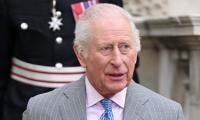KARACHI: Oil rout is expected to strengthen Pakistan’s current and fiscal account positions, as it would cause a significant reduction in petroleum import bills that account for a quarter of the country’s total imports, analysts said on Monday.
“Oil price decline is a clear positive for Pakistan’s macros (economic indicators) with increased confidence over inflation / current account deficit reduction, which could lead to earlier than expected monetary easing,” Fahad Rauf, deputy head of research at Ismail Iqbal Securities said.
Global oil prices plunged as much as 30 percent – the steepest decline since the 1991 Gulf war – as analysts said the battle against coronavirus is transforming “into a war for oil exports market”.
Brokerage Arif Habib Limited expected the country to save $5 billion per annum on account of imports with West Texas Intermediate prices averaging $56/barrel during the past 12 months and having nosedived to $30/barrel.
Current account deficit has already narrowed over 70 percent in the past one year as the government regulated imports to relax pressure on the country’s external account with the International Monetary Fund’s (IMF) financial assistance opening up ways to foreign inflows.
“A decline in oil prices reduces Pakistan’s import bill hence resulting to lower trade and current account deficits and saves foreign currency,” Brokerage Arif Habib said. “Consequently, lower oil prices translate into lower inflation demanding monetary easing leading to better consumer purchasing power benefitting other sectors with higher demand.”
The brokerage said lower oil prices would give the government enough fiscal space to sail through at least the next couple of IMF’s reviews under $6 billion loan program agreed last year.
“The government is unlikely to completely pass on the impact of lower oil prices to the consumers, through increase in petroleum development levy as seen last month,” the brokerage said, referring to the levy offsetting benefits of local oil rate cut.
“The lower oil prices will naturally result in lower CPI (consumer price index) inflation going forward. We estimate average annual inflation could potential come down by 1 to 1.5 percent due to $20/ barrel lower oil prices.”
Atif Zafar, chief economist at Topline Research agreed that lower oil prices are a net positive for Pakistan’s macros – especially the external account – as 26 percent of Pakistan’s imports are oil price driven.”
Zafar, however, sees a contraction impact of this on remittances and exports in the range of $2 to 3 billion.
Rauf of Ismail Iqbal Securities argued against the possibility, reminiscing oil fall three years back that could not hurt remittance inflows. Crude oil price averaged $41 per barrel in the fiscal 2015/16, down 43 percent year-on-year, which led to 32 percent decline in petroleum imports.
“Surprisingly, remittances remained immune despite their link to oil prices as GCC (Gulf Cooperation Council) countries have major contribution in Pakistan’s remittances,” he added.
Export earnings from information technology services that are often included in the remittance head are also considered keysource of foreign inflows in the country, which holds the world’s fourth biggest freelancing community, in terms of revenue.
The central bank raised interest rate by 7.5 percent to a decade-high of 13.25 percent up to July last year since January 2018, in a bid to check inflation. But, this kept the much-needed stimulus at bay amid growth decelerating to 3.3 percent last fiscal year from 5.5 percent in the previous fiscal year.
Analysts were previously expecting soft monetary stance in the second half of the current fiscal year. Now, easing inflation and shocking oil move have brightened the rate cut scope in the announcement expected next week. Consumer inflation eased to 12.4 percent in February from 14.6 percent in January. “We believe the SBP (State Bank of Pakistan) can deliver a 100bps (basis points) cut in policy rate in March,” Zafar said.
Yawar Uz Zaman, head of research at Shajar Research expected the policy rate to be slashed by 50 to 100 basis points in the coming monetary policy statement.
“Whenever oil prices drop significantly and there is lower inflation outlook, SBP reduces the benchmark rate by 2 to 4 percent next year, and this time there is no difference,” Zaman said. “There is an industry-wide consensus over single digit inflation in coming years and keeping positive real interest rate at the cost economic growth should be a concern for the policy makers.”
Currently, the country has the region’s highest interest rate, according to a Bloomberg’s latest survey. Analysts further said all the economic sectors would emerge beneficiary of the rate cut, which would also make up for the devastating oil shock sustained by oil companies.
A representative image of footwear. — Reuters/FileLAHORE: The Pakistan Footwear Machinery & Material Show 2025,...
KARACHI: Faysal Bank Limited is set to actively support the State Bank of Pakistan’s Pakistan Financial Literacy...
Lucky Investment officials posing for photo after inauguration of their new office at the Finance and Trade Centre,...
EMB logo can be seen in EBM's Office. —Linkedin@EBM/FileKARACHI: English Biscuit Manufacturers , one of Pakistan’s...
This undated file photo shows processed gold bars. — AFP/FileKARACHI: Gold prices increased by Rs3,000 per tola on...
A cargo ship full of shipping containers is seen at the port of Oakland, as trade tensions escalate over US tariffs,...







